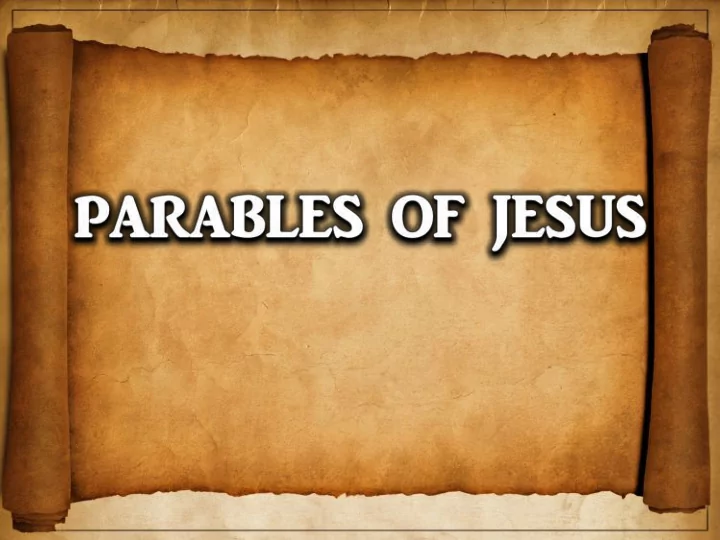

Luke 10:25-37
Luke 10:25-37
The parable of the good Samaritan teaches • us important lessons about how we should treat other people. The story is told in response to a question. • A lawyer (trying to test Jesus) questioned the • Lord about eternal life. “Teacher, what shall I do to inherit eternal • life” (Luke 10:25).
The word “tempted” means “to test • thoroughly.” The word could be referring to the lawyer • trying to trap Jesus or test His knowledge of God’s word.
This question asked by the lawyer is the • most important question that anyone could ever ask. Jesus responded by turning the tables. He • asked the lawyer, “What is written in the Law? How does it read to you?” The man answered, “You shall love the Lord • your God with all your heart, with all your soul, with all your strength, and with all your mind; and your neighbor as yourself.”
His answer is a correct summary of the Ten • Commandments. See Deuteronomy 6:5; 11:13; Leviticus 19:18. • This is, in fact, the same answer that Jesus • Himself gave to another lawyer on another occasion (Mark 12:29-33).
The lawyer answered the question correctly. • But Jesus knew that he did not love his • neighbor as he should. This is exactly why the lawyer asked, “And • who is my neighbor?”
Lawyers in first century Israel were not like • we tend to think of them today.
Lawyers in first century Israel were not like • we tend to think of them today. They were experts in the Law of Moses. •
Lawyers in first century Israel were not like • we tend to think of them today. They were experts in the Law of Moses. • Few people were more skilled in the Law than • lawyers!
And He said to him, “You have answered • correctly; do this and you will live.” - Luke 10:28
And He said to him, “You have answered • correctly; do this and you will live.” - Luke 10:28 But wishing to justify himself, he said to • Jesus, “And who is my neighbor?” - Luke 10:29
Jesus then told him the story about a man • traveling on a road who was beaten by thieves, robbed and left for dead (vs. 30).
Jesus then told him the story about a man • traveling on a road who was beaten by thieves, robbed and left for dead (vs. 30). A priest and a Levite came along and did not • help the man (vss. 31-32).
Jesus then told him the story about a man • traveling on a road who was beaten by thieves, robbed and left for dead (vs. 30). A priest and a Levite came along and did not • help the man (vss. 31-32). But a Samaritan came along and did help the • man (vss. 33-35).
The Samaritans were hated by Jews! •
The Samaritans were hated by Jews! • (For Jews have no dealings with Samaritans.) • - John 4:9
The Samaritans were hated by Jews! • (For Jews have no dealings with Samaritans.) • - John 4:9 Yet, the Samaritan is the only person who • helped the Jewish man on the road!
“Which of these three do you think proved to • be a neighbor to the man who fell into the robbers’ hands?” - Luke 10:36
“Which of these three do you think proved to • be a neighbor to the man who fell into the robbers’ hands?” - Luke 10:36 And he said, “The one who showed mercy • toward him.” Then Jesus said to him, “Go and do the same.” - Luke 10:37
Our neighbor is anyone who needs our help. •
Our neighbor is anyone who needs our help. • When we have the opportunity and ability to • help others and we turn our hears the other way (like the priest and Levite did), we are neither serving God nor our fellow man.
Our neighbor is anyone who needs our help. • When we have the opportunity and ability to • help others and we turn our hears the other way (like the priest and Levite did), we are neither serving God nor our fellow man. We need to do more than just study God’s • word (Luke 10:37)!
Recommend
More recommend